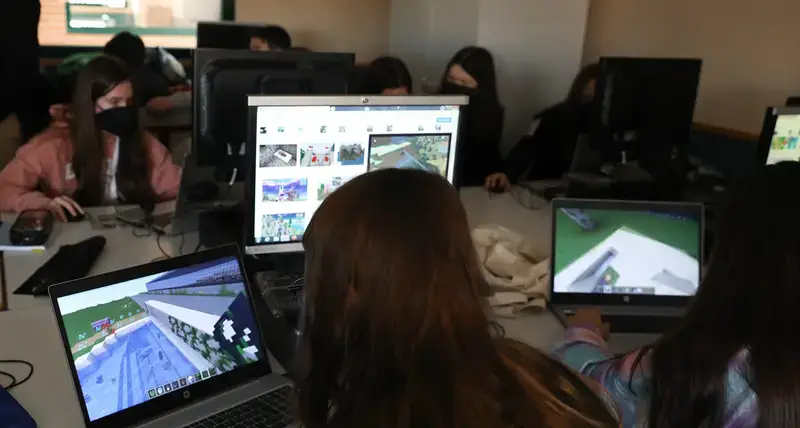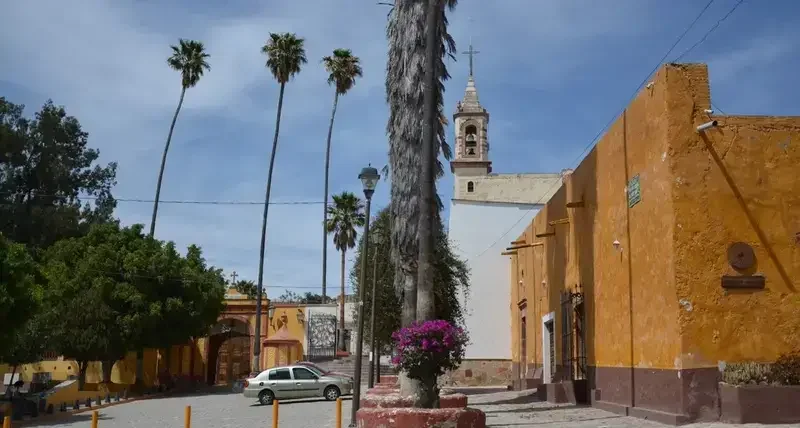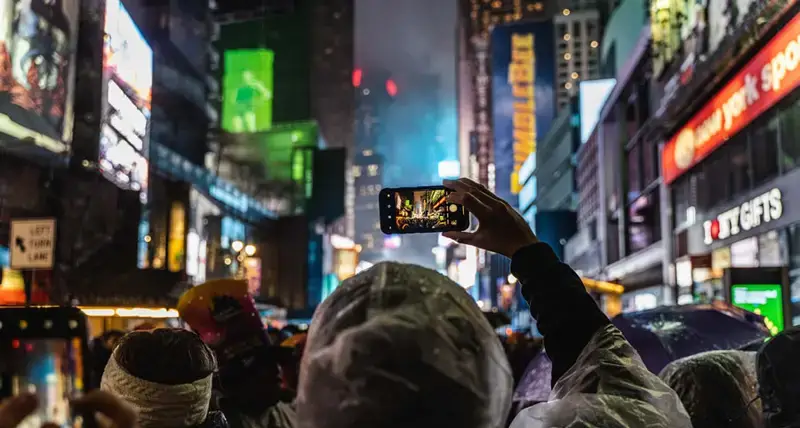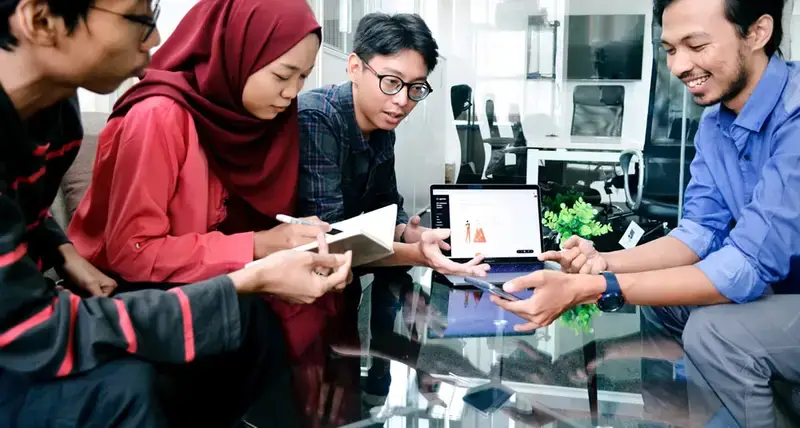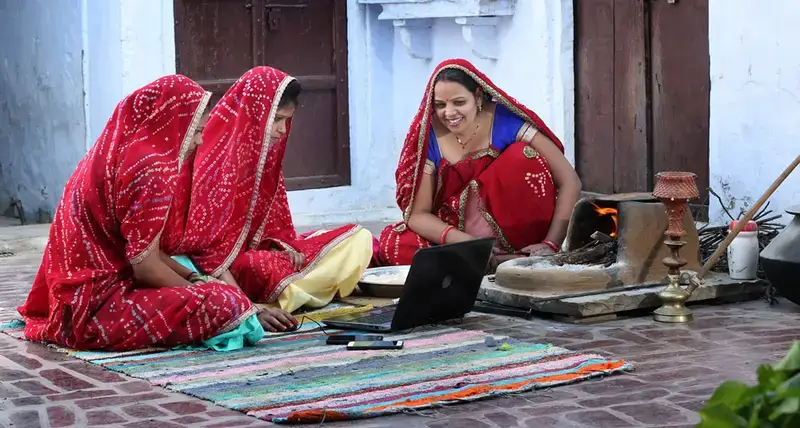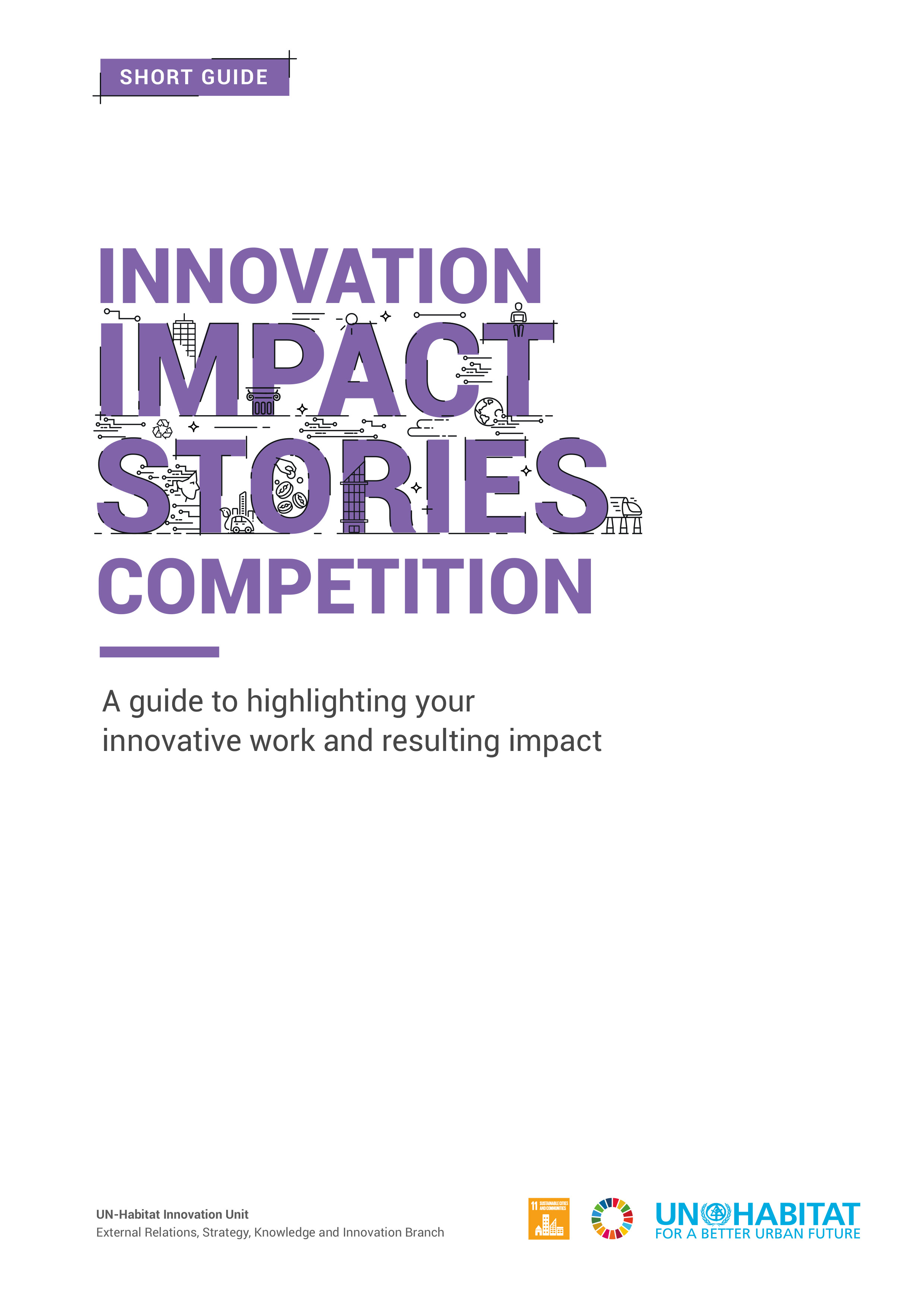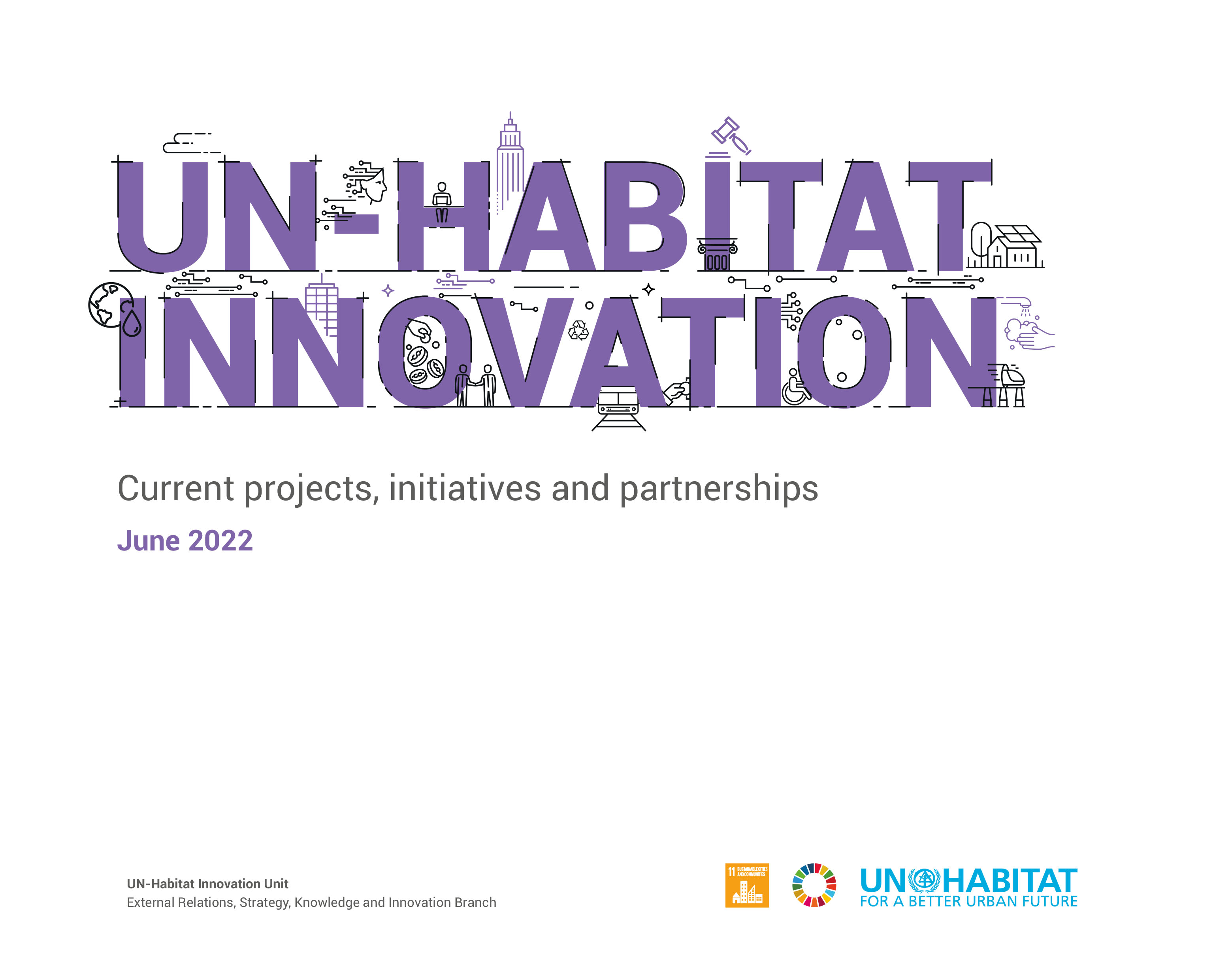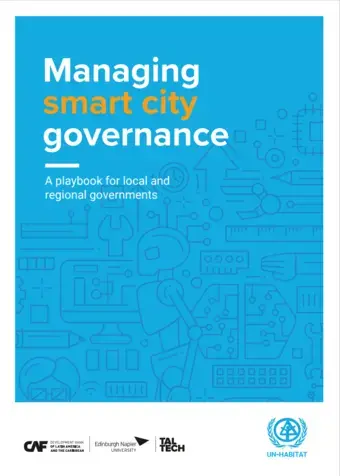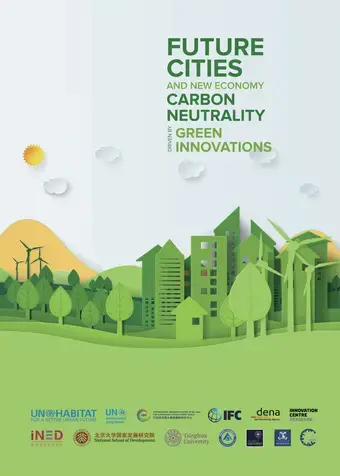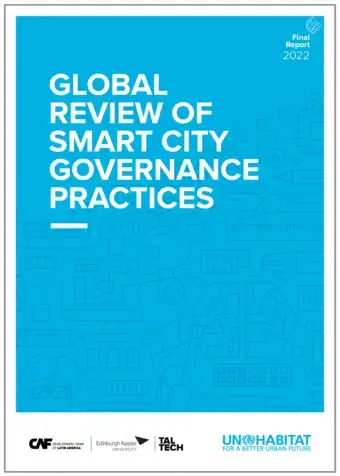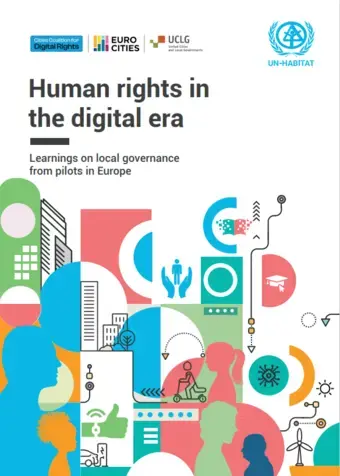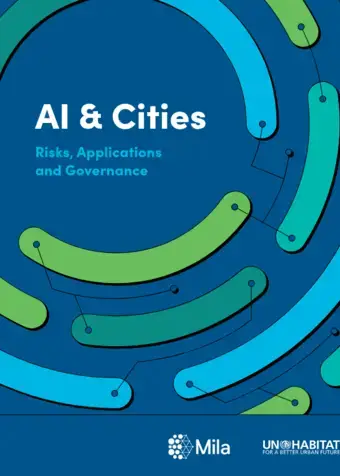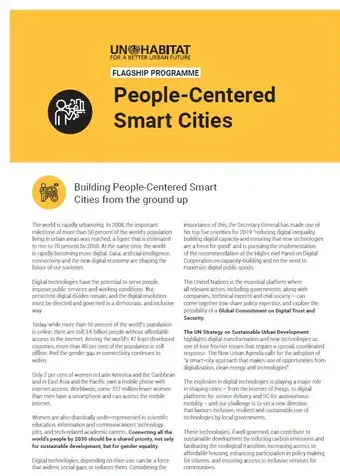Overview
Cities need an integrated, dynamic and nuanced understanding of innovation in order to inspire organizations and communities to develop imaginative, effective solutions to the biggest challenges. When applied in the right context, innovation can act as a catalyst for change, deliver impacts at scale, put people at the center and build a better future for all. For UN-Habitat, innovation means embracing new ideas, up-to-date means and fresh approaches to our work. It incorporates both digital and non-digital technologies as both work in tandem together. It can take shape as an approach, a process, a practical tool or an application. It is based on horizontal and collaborative working practices that consider a diverse range of views and the context in which the innovation is taking place.
UN-Habitat has a long history of innovation. To consolidate on its work, an Innovation Unit was created as part of the 2019-2020 restructuring to strengthen innovative thinking, practice and solutions both within the organization and externally for the benefit of our partners and the beneficiaries we serve. The Innovation Unit promotes an innovation culture for improved sustainable urbanization outcomes, acts as an enabler and broker for new ideas and partnerships for inclusive and at scale impacts, develops knowledge and tools to strengthen innovation, and promotes innovation in project and programme design and implementation by providing advice on tools, methodologies, technologies and partnerships.
The challenge
Many cities around the world, both in developed and developing contexts, continue to face key challenges related to housing, livelihood generation, climate vulnerabilities, basic service provision and the delivery of essential community infrastructure.
Harnessing and accelerating the opportunities that knowledge, science and technology and human capital provide across all dimensions of the urban sphere is now more important than ever. Both SDG 11 and the New Urban Agenda cannot be achieved without deep, transformative societal commitments and resources necessary to deliver Agenda 2030.
Innovation does not happen by magic. Rather, it requires leadership to develop a culture of open mindedness and creativity, as well as inclusive partnerships and resources to translate ideas into action. All stakeholders need to be encouraged to think and engage with innovative ideas to achieve sustainable urbanization. This is especially the case as new challenges, like the COVID-19 pandemic, impact cities and people around the world. Innovation will lie at the heart of many solutions to achieve sustainable and safe urban environments. UN-Habitat intends to continue playing a key role in developing the dynamic partnerships and solutions required to make this happen.
Innovation Impact Stories Competition Guide
UN-Habitat’s guide for the Innovation Impact Stories Competition is designed to outline the competition process and highlight innovative approaches and activities that contribute to efficiencies, inclusiveness and the maximization of impacts in different urban contexts. The goal of the innovation story competition is to identify examples of innovative, impactful and scalable approaches and solutions while fostering a culture of innovation and inspiring new innovative ideas and interventions. The guide provides step by step guidance to design and execute innovation impact stories. It also includes guidance to decide on objectives, thematic areas and other design parameters as well as templates to capture and assess submissions. The guide also has a section on how to write innovation impact stories outlining what goes to into an innovation impact story, things to remember, and links to additional resources.
Innovation Impact Stories Competition Guide
UN-Habitat’s guide for Innovation Impact Stories Competition guide is designed to outline the innovation impact stories competition process and highlight innovative approaches and activities that contribute to efficiencies, inclusiveness and the maximization of impacts in different urban contexts. The goal of the innovation story competition will be to identify examples of innovative, impactful and scalable approaches and solutions while fostering a culture of innovation and inspiring new innovative ideas and interventions.
The guide provides step by step guidance to design and execute innovation impact stories competition and includes guidance to decide on objectives, thematic areas and other design parameters as well as templates to capture and assess submissions. It also has a section on how to write innovation impact stories outlining what goes to into an innovation impact story, things to remember, and links to additional resources.
.
Highlighted Publications
Safety: UN-Habitat’s Safer Cities Programme uses a range of innovative digital technologies to promote safer urban contexts. Often the processes of getting diverse stakeholders together is innovative in and of itself. In addition, more stakeholders, particularly local authorities are using technologies to map safety hot spots.
Resilience: Urban resilience is at the forefront of the UN-Habitat’s work, featuring in the Strategic Plan 2020-2023 as one of the Domains of Change. For example, the CityRAP tool has been adapted and modified to help national and local governments innovate in data-scarce contexts to get first time data on resilience and develop multi-stakeholder action plans.
Donors and partners
UN-Habitat is already working with a diverse range of partners to explore the role and capacity of innovation to sustainable urbanization. We are working with private sector partners such as Microsoft, national innovation development agencies such as Vinnova in Sweden and UN innovation entities such as the UN Innovation Network.
Partners
- Viable Cities
- UN OICT
- HafenCity University
- Shenzhen Association for International Cultural Exchanges
Our Experts
Urban Innovation Series – #1 – Webinar: How to make innovation a transformative force in cities
This webinar is part of UN-Habitat’s Urban Innovation Series and reflects on the transformative innovations that are changing the way we look at sustainable urbanization and the recommendations to trigger innovation in cities. The webinar features interesting reflections from Urban Development Professor Jacqueline Klopp, from Colombia University, shared her priorities from the Technology and Innovation Chapter of the 2020 World Cities Report, which she co-authored; Dr. Merard Mpabwanamaguru, Vice Mayor of Kigali, Rwanda, and Pn. Maimunah Jaffar, Innovation Lead, Iskandar Regional Development Agency, Malaysia. The session concluded with a reflection from two senior representatives from UN-Habitat’s regional offices in Africa and the Asia and Pacific regions, reflecting on innovation on the ground in cities and what the cities need to leverage innovation.
Brainstorm on capitalizing Virtual Reality
The UN-Habitat Youth in Informal Settlements Brainstorming Session brought together a diverse group of; designers, VR specialists, programmers, community representatives, and UN-Habitat staff. The group aimed to discuss and develop innovative solutions for issues faced by individuals living in Informal settlements worldwide
Using mixed reality and Minecraft for urban design in Johannesburg
Working hand in hand with partners, UN-Habitat is working on improving public spaces. The importance of utilizing digital technologies like Minecraft, rests on its ability to engage community members, especially youth from both genders, in a highly visual and intuitive manner that allows the expression of their needs and opinions. Minecraft is a critical tool for democratizing public space and broader spatial planning processes in a cost-effective and highly interactive manner.
Smart Cities Egypt Workshop
Some shots of the smart cities workshop and conference that UN-Habitat organized in Egypt on 24-25 Mar 2019, together with Egypt Housing and Building National Research Center under the Egypt Ministry of Housing.
An Introduction to Block by Block
An introduction to the Block by Block programme using Minecraft. Wonderful things are happening around the world
Commission for the Status of Women (CSW65) Side Event: Innovation and digital technology to enhance the participation of women and girls in cities
The virtual event showcased a series of impactful initiatives that have used innovation and technology to change the lives of women and girls in cities. The event focused on how innovation or technology has improved participatory processes in planning, access to land and basic services and decision making. Participants learnt more about practical and transformative innovations and digital technologies that are helping to deliver gender responsive cities.
